- Home
- Robert Jordan
Conan the Victorious Page 2
Conan the Victorious Read online
Page 2
Gold-leafed domes proliferated on palaces of pale marble, it was true, and alabaster spires stretched toward the azure sky, but the streets were cramped and crooked in the best of quarters, for Sultanapur had grown haphazardly over centuries beyond counting. Half a score of times in those numberless years had the city died, its gilded palaces and temples to now-nameless gods gone to ruin. At each death, however, new palaces and new temples to new gods had grown like mushrooms on the rubble of the old, and like mushrooms, they crowded together where they would, leaving only rambling ways between for streets.
The city was dusty in a land that might know rain once in a year, and it, too, had as distinct a smell as the harbor. Without rain to wash the streets, the stenches of years hung in the hot air, a blend of spices and sweat, perfume and offal, a thousand aromas melded together till the parts could no longer be told one from the other. The whole was an ever-present miasma, as much a part of the city as any building.
Baths proliferated in Sultanapur: ornate marble structures with mosaicked pools, served by nubile wenches in naught but their sleek skins; wooden tubs behind taverns, where a serving girl might scrub a back for the price of a drink. It was the constant heat, however, and not the smell that made them a tradition. The wrinkled nose and the perfumed pomander were signs of the newcomer to Sultanapur, for those who dwelt there for any time no longer noticed the smell.
Newcomers there always were, for the Gilded Bitch of the Vilayet drew certain sorts of men from all corners of the known world. In a cool, fig-tree-shaded court or a shadowy tavern, an ebon-faced merchant from Punt might discuss with an almond-eyed Khitan the disposition of wines from Zingara, or a pale-cheeked Corinthian might speak with a turbaned Vendhyan of the ivory routes to Iranistan. The streets were a polyglot kaleidoscope of multi-hued garb in a hundred cuts from a score of lands, and the languages and accents to be heard among the babble of the marketplaces were too numerous for counting. In some instances the goods were honestly purchased. In others the purchase had been from the pirates who plagued the sea lanes, or coin had been passed to raiders of caravans or to smugglers on a dark coast. However obtained, on no more than half of what passed through Sultanapur was the King’s custom paid. Sultanapur was a queen that took pride in her infidelity to her king.
For all that he was head and shoulders taller than most of those he passed, the muscular young man drew no special notice for his size as he made his way through streets filled with high-wheeled, ox-drawn wains squeaking on ungreased axles toward the docks. His tunic of white linen was tight across the breadth of his shoulders, and a broadsword swung at his side in a worn leather scabbard, but neither sword nor breadth of shoulders was enough to pick him out in Sultanapur. Big men, men who carried swords, were always sure of hire in a city where there was never a lack of goods or lives to guard.
Beneath a thick mane of black hair, held back from his face by a leather cord, were eyes as blue as the Vilayet and as hard as agates. Those eyes did cause stares from the few who noticed them. Some made a sign to ward off the evil eye as he passed, but those who did so did it surreptitiously. It was all very well to avoid the curse of those strange eyes, but to anger their possessor was another matter entirely when the leather wrappings of his sword-hilt were worn smooth with use and his bearing and face showed him little loath to add to that wear.
Aware of those who stared and made the sign of the horns, the youth ignored them. Two months in Sultanapur had made him used to such. Sometimes he wondered how those men would take it if they found themselves in his native mountains of Cimmeria, where eyes of any shade but blue or gray were as rare as his own were in this southern land of Turan. As often since coming to this place where the blue Vilayet mocked with its wetness the dry air, he thought longingly of the wind-swept, snowy crags of his homeland. Longingly, but briefly. Before coming to Turan he had been a thief, but he found that the gold that came from thievery had a way of trickling through his fingers as fast as he got it. He meant to return to Cimmeria—someday—but with gold enough to scatter like drops of water. And in Sultanapur he had found an old friend and a new trade.
At a stone-walled tavern with a crescent moon roughly daubed in yellow on its front, the Cimmerian went in, cutting off much of the noise of the street as he pulled the heavy door shut behind him. The Golden Crescent was cool inside, for its thick walls kept out the heat of the sun as well as the clatter. Tables were scattered across the stone floor so that talk at one could not easily be heard at another, and the interior was lighted poorly apurpose, for here whom a man talked to or what he said was considered no one’s business but his own. The patrons were mainly Turanians, though they seemed a mixed lot. Their garments ranged from threadbare once-white cotton to costly velvets and silks in gaudy shades of scarlet and yellow. Not even the most ragged of them lacked coin, though, as evidenced by the number of doxies seated on men’s knees or displaying their wares among the tables in narrow strips of brightly colored silk.
Some of the men nodded to the Cimmerian, or spoke. He knew them by name—Junio and Valash and Emilius—for they followed the same trade as he, but he did no more than acknowledge their greeting for he had no interest in them this day. He peered into the dimness, searching for one woman in particular. He saw her at the same moment she saw him.
“Conan!” she squealed, and he found his arms full of satiny olive flesh. A length of red silk two fingers in width encircled her rounded breasts, and another twice as wide was tucked through a narrow girdle of gilded brass set low on sweetly curving hips. Black hair cascaded down her back to all but bare buttocks, and her eyes shone darkly. “I hoped you would come to see me. I have missed you sorely.”
“Missed me?” he laughed. “It has been but four days, Tasha. But to mend your loneliness…” He freed a hand to delve into the leather purse at his belt and held up a blue topaz on a fine golden chain. For the next few minutes he was busy being kissed, fastening the chain about her neck, then being kissed again. And being kissed by Tasha, he thought, was more definite than a night in some women’s arms.
Lifting the clear azure stone from its nest between her breasts, she admired it again, then gazed up at him through long lashes. “You must have had good luck with your fishing,” she smiled.
Conan grinned. “We fishermen must work very hard for our coin, casting nets out, hauling them in. Luckily, the price of fish is very high right now.” To gales of laughter from men close enough to hear, he led Tasha to an empty table.
All of the men who frequented the Golden Crescent called themselves fishermen, and it was even possible that some few actually were, upon occasion. For the vast majority, however, their “catches” were landed at night on deserted stretches of the coast where none of King Yildiz’s excisemen were about to see whether it was fish or bales of silk and casks of wine that were offloaded. It was said that if all of the so-called fishermen in Sultanapur actually brought fish to market, the city would be buried to the tops of the tallest tower, and the Vilayet would be stripped of its finny denizens.
At a table near the back of the room, Conan dropped to a bench and pulled Tasha on to his lap. A sloe-eyed serving girl appeared at his elbow, wearing little more than the doxies, though in cotton rather than silk. She was as available as the other women, for those who could not or would not pay the trulls’ prices, and the smile she beamed at the broad-shouldered Cimmerian said she would take Tasha’s place in an instant.
“Wine,” he said and watched the rhythmic sway of her almost-covered hips as she left.
“You did come to see me, did you not?” Tasha asked acidly. “Or is that why you did not come yesterday? You said you would return yesterday. Were you off comforting some thick-ankled serving wench?”
“I did not think her ankles were thick,” Conan said blandly. His hand barely caught Tasha’s wrist before her slap reached his face. She squirmed on his lap as though to rise, and he tightened his arm around her waist. “Who is sitting on my knee?” he asked. “That s
hould tell you whom I want.”
“Perhaps,” she pouted, but at least she had stopped trying to get up.
He released her arm carefully. He had been made aware of her temper early on. She was quite capable of trying to rake his eyes out with her nails. But the passion that went into her rages she put into other things as well, and so he continued to seek her out.
The serving girl returned with a clay pitcher of wins and two battered metal cups, taking away the coins he gave her. This time Tasha watched her depart, with a glare that boded ill. It had been Conan’s experience that women, whatever they said, preferred men who were not easily bullied, but now he thought a little oiling of the waters might be in order.
“Now look you,” he said. “We did not return to Sultanapur until this very morning, for the wind turned against us. From the boat to here I took only a few hours to find that bauble for you. If need be, I will fetch Hordo to vouch for it.”
“He would lie for you.” She took the cup he filled for her, but instead of drinking she bit her lower lip, then said, “He came looking for you. Hordo, I mean. I forgot, before. He wants to see you right away. Something about a load of ‘fish.’ ”
Conan hid a smile. It was a transparent attempt to make him leave on a fool’s errand. On leaving their vessel, the one-eyed smuggler had spoken of his intentions to seek out a certain merchant’s wife whose husband was in Akif. The Cimmerian saw no reason to share that knowledge, however.
“Hordo can wait.”
“But—”
“You, Tasha, I prize above any silk or gems. I will stay here. With you.”
She gave him a sidelong glance with bright eyes. “You hold me so dear?” Lithely she snuggled closer to him and bent to murmur into his ear between teasing nips with small white teeth. “I like your present very much, Conan.”
The sounds of the street intruded momentarily, indicating the entrance of another patron. With a gasp, Tasha crouched as though trying to use him as a shield. Even for the Golden Crescent, he realized suddenly, it had become too quiet. The constant low murmur of conversation was gone. The Cimmerian looked at the door. In the dimness he could barely make out the shape of a man, tall for a Turanian. One thing was plain, however, even in the shadows by the door. The man wore the tall pointed helmet of the City Guard.
The intruder walked slowly into the silent tavern, head swiveling as if searching for someone, the fingers of one hand tapping on the hilt of the curved sword at his hip. None of the men at the scattered tables met his eyes, but he did not appear interested in any of them. He was an officer, Conan could now see, a narrow-faced man, tall for a Turanian, with a thin mustache and a small beard waxed to a point.
The officer’s fingers stopped tapping as his gaze lit on Conan’s table, then began again as he drew closer. “Ah, Tasha,” he said smoothly, “did you forget I said I would come to you today?”
Tasha kept her eyes down and answered in a near whisper, “Forgive me, Captain Murad. You see that I have a patron. I cannot…I…please.”
“Find another woman,” Conan growled.
The captain’s face froze, but he did not take his eyes from Tasha. “I did not speak to you…fisherman. Tasha, I do not want to hurt you again, but you must learn to obey.”
Conan sneered. “Only a fool needs fear in his dealings with women. If you prefer cringing curs, find yourself a dog to beat.”
The guardsman’s face paled beneath its swarthiness. Abruptly he seized Tasha’s arm, jerking her from the Cimmerian’s lap. “Leave my sight, scum, before I—”
The threat cut off as Conan leaped to his feet with a snarl. The narrow-faced man’s eyes widened in surprise, as though he had expected the girl to be given up without a fight, and his hand darted for his sword hilt, but Conan moved faster. Not toward his own blade, however. Killing guardsmen was considered bad business for smugglers unless it was absolutely necessary, and in truth usually even then. Soldiers who palmed a coin and looked the other way could become tigers in defense of the King’s laws when one of their own was slain. The Cimmerian’s fist smashed into the other’s chin before a fingerwidth of steel was bared. The officer seemed to attempt a tumbler’s back flip and fell against a table, toppling it as he dropped to the floor. His helmet spun across the floor, but the Turanian lay where he had fallen like a sack of rags.
The tavernkeeper, a plump Kothian with small gold rings in the lobe of each ear, bent to peer at the officer. He scrubbed his fat hands nervously on his wine-stained apron as he straightened. “You’ve ruined my custom for a tenday, northlander. If I’m lucky. Mitra, man! You’ve killed the perfumed buffoon! His neck’s snapped.”
Before anyone else could speak or move the door to the street slammed open, and two more guardsmen strode through. They marched into the common room sneering as though it were a barracks square filled with peasant conscripts. The unnatural stillness of the tavern was disturbed by tiny shiftings and rustlings as men marked escape routes.
Conan quietly cursed under his breath. He was all but standing over the accursed fool’s body. To move would only draw attention more quickly than it would come already. As for running, he had no intention of dying with a sword in his back. With a small gesture he motioned Tasha from him. He found the alacrity with which she obeyed a trifle disappointing.
“We seek Captain Murad,” one of the guardsmen shouted into the silence. An oft-broken nose gave him a brawler’s face. The other tugged at a straggly mustache and stared superciliously about the room. The Kothian tried to scuttle into the deeper shadows, but the broken-nosed soldier froze him with a glare. “You, innkeeper! This smuggling scum you serve seem to have no tongues. Where is Captain Murad? I know he came in here.”
The Kothian’s mouth worked soundlessly, and he scrubbed his hands all the harder in his apron.
“Find your tongue, fool, before I slit it! If the captain’s with a wench, still he must hear the word I bring without delay. Speak, or I’ll have your hide for boots!”
Abruptly the straggly-mustached soldier caught the speaker’s tunic sleeve. “It’s Murad, Tavik!” he exclaimed, pointing.
From the still form of the officer the guards’ eyes rose inexorably to Conan, their faces hard. The Cimmerian waited calmly, seemingly unaffected by their stares. What would happen, would happen.
“Your work, big man?” Tavik asked coldly. “Striking an officer of the City Guard will cost you the bastinado. Abdul, see to waking the captain.”
They had rested too long under the protection of their position with regard to the smugglers, the big youth thought. Tavik drew his curved sword, but held it casually, lowered by his side, as though he did not believe anyone there would actually make him use it. The other did not even reach for his weapon.
Abdul squatted beside Captain Murad’s body, grasped the officer’s arms, and stiffened. “He’s dead,” he breathed, then shouted it. “He’s dead, Tavik!”
Conan kicked the bench he had been sitting on at Abdul, who was attempting to leap to his feet and unsheathe his sword at the same time. As the scraggly-mustached man danced awkwardly to avoid falling over the impediment, the Cimmerian’s own blade was bared. At his companion’s cry, Tavik had raised his blade high to slash, which might have been all very well had his opponent been unarmed. Now he paid for his error as Conan’s steel sliced across his exposed belly. With a shrill scream, Tavik dropped his sword, fingers clutching in a vain attempt to keep in the thick ropes of his intestines as he followed the weapon to the stone floor.
Conan leaped back as he recovered from the killing stroke, his broadsword arcking down barely in time to block Abdul’s thrust at his side. The force of the blow knocked the guardsman’s tulwar wide, and doomed desperation filled his dark eyes in the moment before the Cimmerian’s blade pierced his throat to stand out a handspan from the back of his neck. As Conan jerked his sword free from the collapsing corpse, Tavik gave one last kick and died.
Grimly the Cimmerian wiped his sword on Abdul’s tuni
c and sheathed it. The common room, he realized, now held but half those it had at the beginning of his fight, and more were disappearing every moment through the doors that led to alleys beside and behind the building. No man or wench in the tavern but would want to be able to deny being in the Golden Crescent on the day three of the City Guard died there.
The Kothian tavernkeeper cracked the door to the street enough to peer out, then closed it with a groan. “Guardsmen,” he muttered. “Half a score of them. And they look impatient. They’ll be in here in a trice to see what’s keeping those two. How am I to explain this happening in my tavern? What am I to tell them?” His hand snatched the gold coin Conan tossed him, and he was not too despondent to bite it before making it disappear beneath his apron.
“Tell them, Banaric,” Conan said, “of the slavers from Khoraf who killed the captain in a quarrel, and then the guardsmen. A dozen slavers. Too many for you to interfere.”
Banaric nodded reluctantly. “They might believe it. Maybe.”
They were the last two in the tavern, Conan saw. Even Tasha had gone. And without a word, he thought sourly. In a matter of moments the entire day had gone rotten. At least he would not have to worry about being hounded by the City Guard. Or he would not if the Kothian told the story he had been paid to tell.
“Remember, Banaric,” he said. “A dozen Khorafi slavers.” He waited for the innkeeper’s nod, then slipped out the back.
CHAPTER II
Conan hurried away from the Golden Crescent by the network of alleys, barely as wide as his shoulders and stinking of urine and offal, that crisscrossed the area of the tavern. His plans had been for a day in Tasha’s arms, but that had certainly gone aglimmering. He slipped in the slime underfoot, barely caught himself, and cursed. Even if he managed to find the jade again, he was not sure he wanted to spend time with a woman who would take his gift and then run away—without so much as a kiss—just because of a little trouble. There were other women, and other uses for his time. Even after buying the topaz for her and tossing a gold piece to Banaric, Conan’s purse was far from empty. The “fish” unloaded the night before on a secluded beach had been Khitan silks and the famed Basralla laces from Vendhya, and the prices paid for them were generous. He would spend a little coin on himself.

 Conan the Unconquered
Conan the Unconquered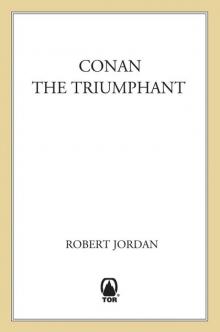 Conan the Triumphant
Conan the Triumphant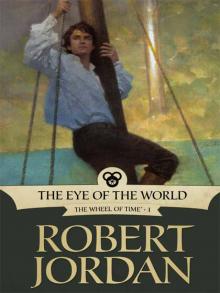 The Eye of the World
The Eye of the World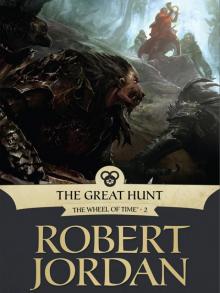 The Great Hunt
The Great Hunt Conan the Victorious
Conan the Victorious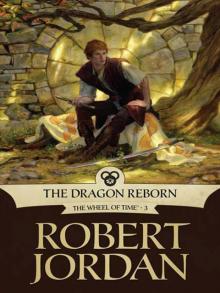 The Dragon Reborn
The Dragon Reborn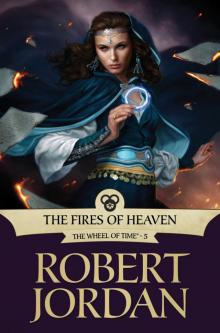 The Fires of Heaven
The Fires of Heaven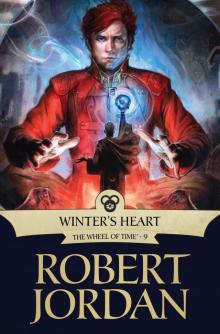 Winter's Heart
Winter's Heart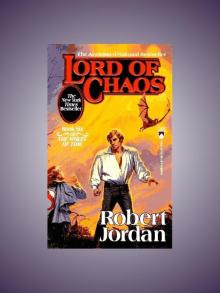 Lord of Chaos
Lord of Chaos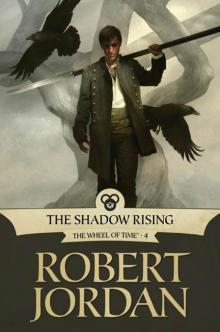 The Shadow Rising
The Shadow Rising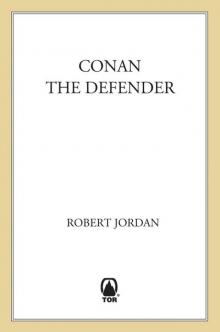 Conan the Defender
Conan the Defender The Strike at Shayol Ghul
The Strike at Shayol Ghul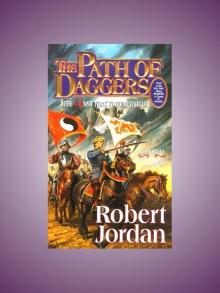 The Path of Daggers
The Path of Daggers A Memory of Light
A Memory of Light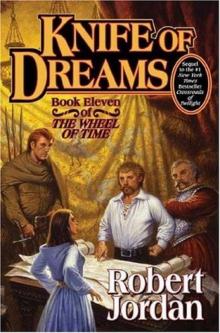 Knife of Dreams
Knife of Dreams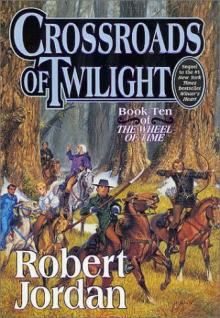 Crossroads of Twilight
Crossroads of Twilight Conan the Invincible
Conan the Invincible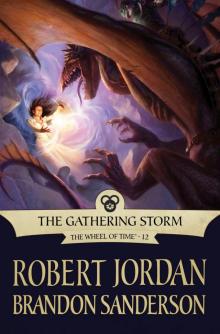 The Gathering Storm
The Gathering Storm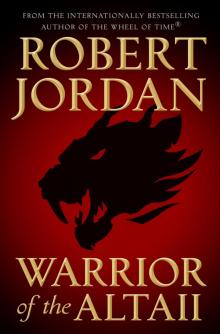 Warrior of the Altaii
Warrior of the Altaii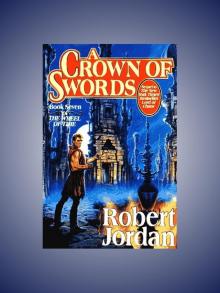 A Crown of Swords
A Crown of Swords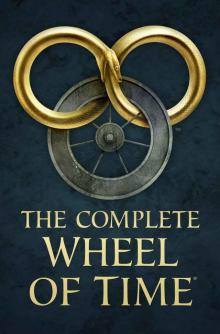 The Wheel of Time
The Wheel of Time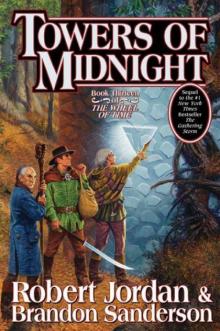 Towers of Midnight
Towers of Midnight Conan Chronicles 2
Conan Chronicles 2 Conan the Magnificent
Conan the Magnificent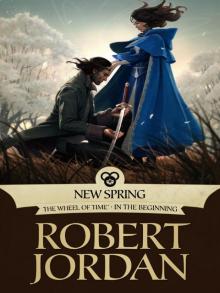 New Spring
New Spring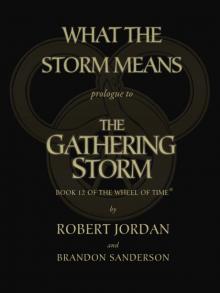 What the Storm Means
What the Storm Means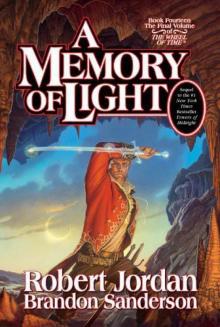 A Memory of Light twot-14
A Memory of Light twot-14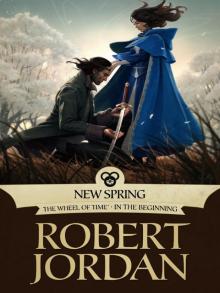 New Spring: The Novel
New Spring: The Novel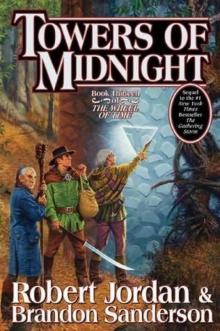 Towers of midnight wot-13
Towers of midnight wot-13 A Memory Of Light: Wheel of Time Book 14
A Memory Of Light: Wheel of Time Book 14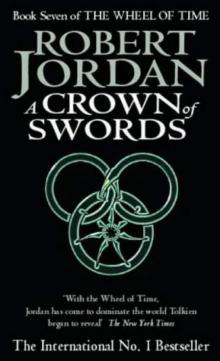 A Crown of Swords twot-7
A Crown of Swords twot-7 Lord of Chaos twot-6
Lord of Chaos twot-6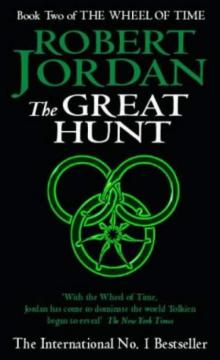 The Great Hunt twot-2
The Great Hunt twot-2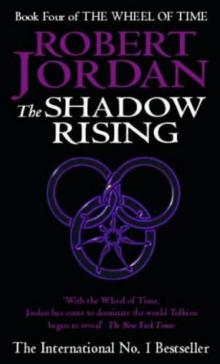 The Shadow Rising twot-4
The Shadow Rising twot-4![Wheel of Time-11] Knife of Dreams Read online](http://i1.bookreadfree.com/i1/04/03/wheel_of_time-11_knife_of_dreams_preview.jpg) Wheel of Time-11] Knife of Dreams
Wheel of Time-11] Knife of Dreams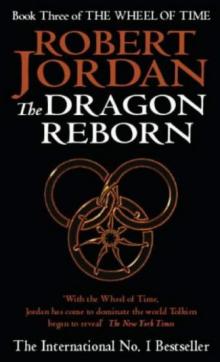 The Dragon Reborn twot-3
The Dragon Reborn twot-3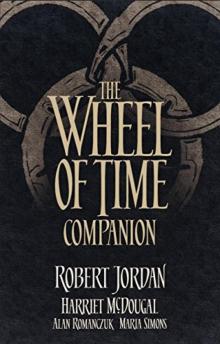 The Wheel of Time Companion
The Wheel of Time Companion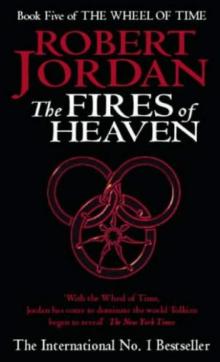 The Fires of Heaven twot-5
The Fires of Heaven twot-5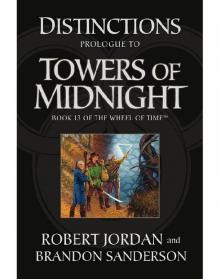 Prologue to Towers of Midnight
Prologue to Towers of Midnight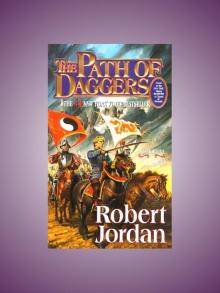 The Path of Daggers - The Wheel of Time Book 8
The Path of Daggers - The Wheel of Time Book 8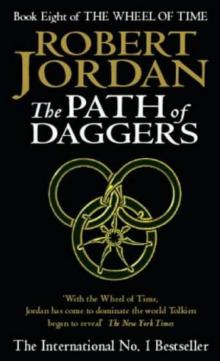 The Path of Daggers twot-8
The Path of Daggers twot-8 By Grace and Banners Fallen: Prologue to a Memory of Light
By Grace and Banners Fallen: Prologue to a Memory of Light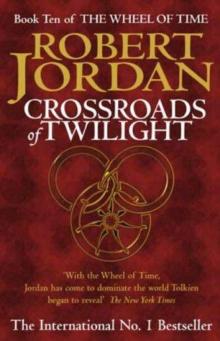 Crossroads of Twilight twot-10
Crossroads of Twilight twot-10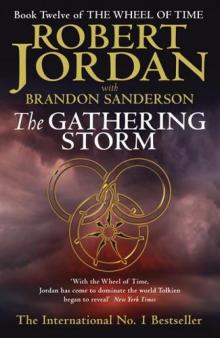 The Gathering Storm twot-12
The Gathering Storm twot-12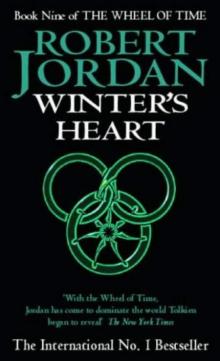 Winter's Heart twot-9
Winter's Heart twot-9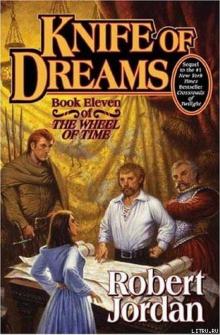 Knife of Dreams twot-11
Knife of Dreams twot-11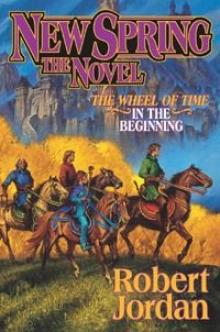 New Spring: The Novel (wheel of time)
New Spring: The Novel (wheel of time)